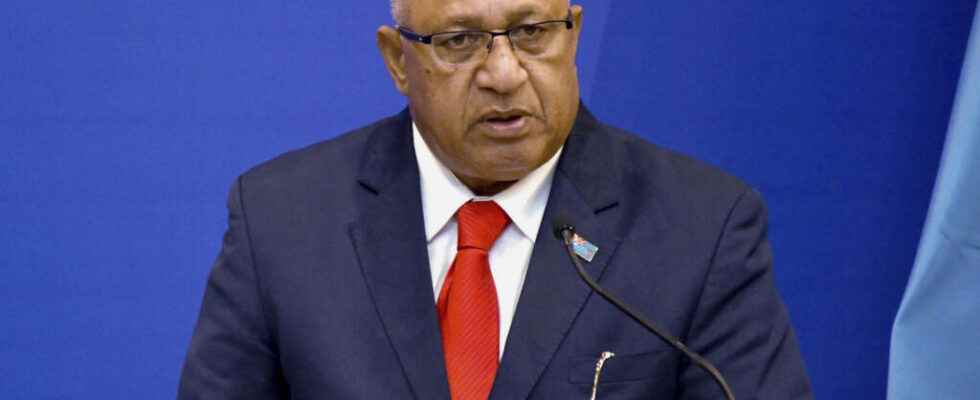The Fijian opposition reached an agreement on Tuesday (December 20th) to form a coalition government, Social Democratic Party politicians announced, marking the end of the reign of Frank Bainimarama.
It is the end of sixteen years in power for the Prime Minister. The small social-democratic party (Sodelpa) affirmed that its office had voted by 16 votes against 14 in favor of a coalition led by Sitiveni Rabuka, former head of government and twice putsch leader, who should become the next Prime Minister of this Pacific State. Details of the final coalition deal were not yet clear, but Sitiveni Rabuka and his allies in the new coalition signaled ahead of the vote their desire to loosen ties with China, from which Frank Bainimarama had split. close.
As the news began to circulate, supporters of Sitiveni Rabuka sang joyful polyphonic chants outside her campaign headquarters. Car horns blared and activists danced in the streets holding up traffic cones, shawls and placards.
Relief
Elijah Rokoderea, supporter of Sitiveni Rabuka, said he was relieved to see Frank Bainimarama ousted from power and wanted to ” to celebrate ” the new. ” This oppressive government has been in place for sixteen years. We can’t even organize demonstrations he said from the campaign headquarters of Sitiveni Rabuka.
Frank Bainimarama came to the point in 2006 in a coup, later winning two elections to legitimize his power. His government has frequently used the judiciary to oust opponents and silence critics and the media.
Frank Bainimarama has not spoken in public since Wednesday’s vote. The election had not made it possible to decide between the two main political forces, neither of which managed to obtain a majority in Parliament. Four coups have taken place in Fiji in the past 35 years and the possibility of military intervention loomed over this year’s poll.
►Read also: In the South Pacific, Beijing boasts of its regional free trade and security agreement
(With AFP)
